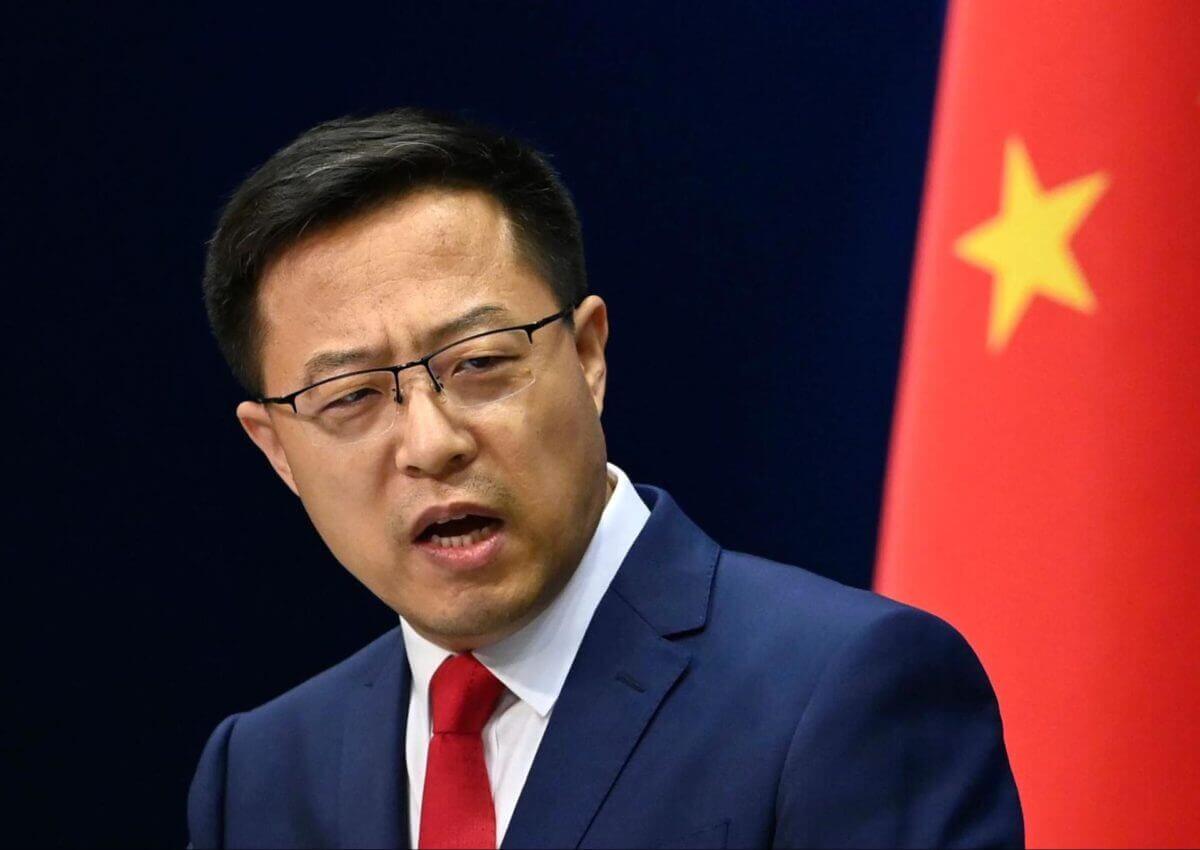China warned the United States’ (US) House Speaker Nancy Pelosi against visiting Taiwan next, saying that the move would result in “consequences” and invite strict countermeasures.
During his regular press conference on Tuesday, Chinese Foreign Ministry spokesperson Zhao Lijian said that Beijing “has repeatedly stated its stern position” to “any form of official interaction” between the US and Taiwan. He added that the US Congress, which is part of the federal government, is “supposed to strictly adhere to the one-China policy.” “China firmly opposes such a visit,” he thus declared.
“If Speaker Pelosi visits Taiwan, it would seriously violate the one-China principle and the stipulations in the three China-US joint communiqués and harm China’s sovereignty and territorial integrity,” Zhao asserted. The spokesperson also warned that the top lawmaker’s visit would “have a severe negative impact on the political foundation” of bilateral relations “and send a gravely wrong signal to “Taiwan independence” and separatist forces.
To this end, the foreign ministry official further urged Washington to refrain from arranging Pelosi’s visit to the island, continue official interactions, create “factors that could lead to tensions in the Taiwan Strait,” and follow through on its commitment of not supporting “Taiwan independence”. “Should the US side insist on doing otherwise, China will take strong and resolute measures to safeguard its sovereignty and territorial integrity” and the US will “assume full responsibility for any ensuing consequences,” Zhao warned.
Chinese state-owned media house Global Times (GT) quoted local analysts as saying that if Pelosi does commit the “blatant strategic-level provocation” she “would spark a much more dangerous incident than the Taiwan Straits Crisis in 1996 and [...] cause a huge setback for China-US ties.” They warned that Beijing’s response would “not only [be] military but also strategic” and that “the consequences would be hard for the US,” which is already under “serious economic pressure.”
GT further elaborated on the significance of the visit by saying that Pelosi, who is second in line to the presidency, would become the senior-most US lawmaker to visit the region since one of her predecessors, Newt Gingrich, visited the island in 1997. However, Chinese foreign policy analysts stressed that the former speaker’s case was “very different from Pelosi’s” because Gingrich, a Republican politician, “was in [the] opposition during a Democratic administration” and had shown sincere efforts to mend US-China ties in the late 90s. In contrast, Pelosi is part of President Joe Biden’s Democrat government and is making the visit at a time when relations between the superpowers are already “very intense.”
#China urges that #US must not arrange House Speaker Nancy Pelosi’s Taiwan visit, stop official exchange with Taiwan, and stop creating tensions over the Taiwan Straits, or China will take forceful countermeasures: Chinese Foreign Ministry pic.twitter.com/kcIA0rxVWJ
— Zhang Heqing张和清 (@zhang_heqing) July 19, 2022
Similarly, Chinese Foreign Minister Wang Yi also said that if the US does finalise Pelosi’s visit, it would be a “malicious provocation against China’s sovereignty and gross interference in China’s internal affairs.”
Although Taiwanese foreign ministry spokesperson Joanne Ou claims that her office has received no information about Pelosi’s upcoming visit to the self-governing island, six people familiar with the preparations told the Financial Times on Tuesday that Congresswoman Pelosi would take a delegation to Taiwan as early as next month. Pelosi’s office also told The Washington Post on Tuesday that they “do not confirm or deny international travel in advance due to long-standing security protocols.”
The top lawmaker, who is known to be a vocal critic of Beijing, had previously announced the postponement of her Asia tour in April after she tested positive for COVID-19.
Taiwan, which is claimed by Beijing as part of its own territory, has been consistently increasing its defence budget every year and strengthening its multilateral relations in the pursuit of seeking greater protection against Chinese calls for reunification and threats of invasion. Its future has been a matter of great concern in the international community, as China has been stepping up its military presence near Taiwan’s waters and has also increased aerial incursions into Taiwanese airspace.
Meanwhile, the US has maintained a policy of “strategic ambiguity” over whether it would utilise its military to defend the island in the event of possible conflict with China. US law requires the government must ensure that Taipei has the means to defend itself and views threats to its security as matters of “grave concern.”
During a visit to Japan in May, President Joe Biden suggested that the US would intervene militarily if China attempted to take Taiwan by force. However, White House officials quickly downplayed his comments, saying the US is merely committed to providing Taiwan with the means to defend itself.

